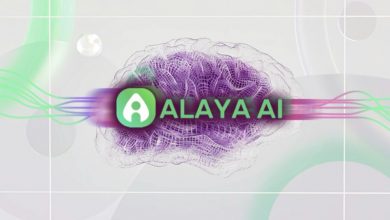Digital Deeds and Property Title Verification: Securing Land Ownership

Land ownership is one of the most critical aspects of economic and social stability. However, ensuring that property ownership is transparent and secure has often been a challenge. For centuries, disputes over land titles and fraudulent claims have plagued individuals and governments alike. With the advancement of digital technology, the terrain of property title management is undergoing a significant transformation. Digital deeds and modern verification systems are revolutionizing the way land ownership is recorded and secured.
The Evolution of Property Title Verification
Traditionally, property title verification has been a cumbersome process reliant on paper-based systems. These systems were prone to inefficiencies, errors, and vulnerabilities. Manual record-keeping made it easier for documents to be tampered with or misplaced, which often led to countless disputes over land ownership. Moreover, the lack of standardization in record-keeping practices further complicated matters. Consequently, this inefficiency fueled mistrust among stakeholders.
The shift towards digitization began as governments and organizations recognized the need for more reliable systems. Digitizing property records reduces the risk of fraud, ensures data integrity, and makes information more accessible to all stakeholders. Importantly, today, tools like blockchain, artificial intelligence (AI), and digital databases are taking property title verification to unprecedented levels of security and transparency. This transition marks a major step forward in securing land ownership for individuals and communities.
What Are Digital Deeds?
Digital deeds are electronic records that document property ownership. These digital records replace traditional paper-based deeds and are stored securely in digital databases. Notably, they are often linked to advanced technologies like blockchain. These features provide a tamper-proof way to record and verify property ownership.
Key characteristics of digital deeds include:
Security:
Digital deeds are encrypted, ensuring they cannot be altered or forged. As a result, they offer greater protection against fraud.
Accessibility:
Owners and authorized parties can access these records instantly from anywhere, which enables faster processes.
Sustainability:
By reducing dependency on paper, digital deeds contribute to environmental conservation.
The introduction of digital deeds has streamlined property transactions and significantly reduced disputes over land ownership. By creating a reliable, centralized system, stakeholders can confidently verify property titles without fear of inaccuracies or fraud. Therefore, these innovations are making property management more effective.
The Role of Blockchain in Property Verification
Blockchain technology has emerged as a game-changer in property title verification. This decentralized ledger system provides a secure and transparent way to manage property records. Its ability to ensure data immutability and traceability makes it ideal for land ownership management.
Key Benefits of Blockchain in Property Verification:
Tamper-Proof Records:
Once data is entered into the blockchain, it cannot be altered without consensus, ensuring the integrity of property titles.
Transparency:
Blockchain’s public ledger allows authorized users to view all transactions, thereby enhancing trust and reducing the scope for fraudulent activities.
Auditability:
Every change in property ownership is logged and easily traceable, which provides a clear history of transactions.
For example, countries like Sweden and Georgia have successfully implemented blockchain-based systems for land registry. These systems have improved efficiency, reduced fraud, and increased public trust in property transactions. Therefore, blockchain is paving the way for secure property management globally.
Benefits of Digital Deeds and Modern Verification Systems
Enhanced Security
Digital deeds utilize encryption and advanced authentication methods, making them highly secure. Unlike traditional paper deeds, they are immune to forgery and unauthorized modifications. Blockchain technology further enhances this security by ensuring that records are immutable. Consequently, property ownership becomes more trustworthy.
Increased Transparency
Modern verification systems provide all stakeholders with access to accurate and up-to-date property information. This transparency reduces disputes and builds trust among buyers, sellers, and regulatory authorities. As a result, property transactions become more streamlined.
Cost Efficiency
The digitization of property records eliminates the need for intermediaries, thereby reducing costs associated with verification and transactions. Automated processes also minimize administrative expenses, which leads to savings for all parties involved.
Faster Processes
Manual record-keeping and verification can take weeks or even months. Digital systems streamline these processes, enabling quicker ownership transfers and reduced delays. Consequently, buyers and sellers experience greater convenience.
Fraud Prevention
Fraudulent claims and document tampering are persistent issues in property transactions. Digital deeds and blockchain technology make it nearly impossible for bad actors to manipulate records, ensuring the legitimacy of ownership. Hence, these systems offer unmatched reliability.
Challenges in Implementing Digital Deeds
While the benefits of digital deeds are undeniable, several challenges must be addressed for widespread adoption.
Infrastructure Limitations
In many regions, especially in developing countries, the infrastructure needed for digital transformation is lacking. Limited internet connectivity and inadequate digital literacy pose significant barriers to implementation. Consequently, these issues slow down progress.
Legal Frameworks
Many jurisdictions have not yet updated their legal systems to recognize digital deeds as valid proof of ownership. Establishing comprehensive legal frameworks is essential to facilitate the adoption of digital solutions. Without this, adoption may remain limited.
Data Privacy Concerns
Digitizing land records exposes sensitive information to potential cybersecurity threats. Robust encryption and data protection measures are necessary to safeguard these records from unauthorized access or breaches. Therefore, governments must prioritize cybersecurity.
Resistance to Change
Traditional stakeholders, such as registry offices and local authorities, may resist adopting new technologies. Overcoming this resistance requires education, training, and demonstrating the benefits of digitization. As a result, stakeholders are more likely to embrace change.
Steps to Secure Land Ownership with Digital Deeds
Digitization of Records
Governments should prioritize the digitization of all existing land records. This ensures that the transition to digital deeds is based on accurate and comprehensive data. Consequently, future disputes can be minimized.
Implementation of Blockchain
Adopting blockchain technology can significantly enhance the security and transparency of property records. Governments and organizations must invest in blockchain infrastructure to ensure reliable and tamper-proof systems. Therefore, public trust can be increased.
Public Awareness and Education
Raising awareness about the benefits of digital deeds and modern verification systems is essential. Public education campaigns can help citizens understand the advantages and encourage widespread adoption. Hence, awareness plays a critical role in success.
Stakeholder Collaboration
Collaboration between governments, technology providers, and legal experts is critical to creating unified systems. Working together ensures consistency and compatibility across platforms, making property transactions seamless. Therefore, partnerships are vital.
Real-Life Applications
Sweden’s Blockchain Initiative
Sweden’s land registry authority, Lantmäteriet, has implemented a blockchain-based system to streamline property transactions. This initiative has reduced processing times and enhanced trust in the real estate sector. Consequently, Sweden serves as a model for others.
India’s Digital Land Records
In India, states like Andhra Pradesh and Telangana have adopted blockchain technology to digitize land records. These initiatives aim to eliminate corruption, increase transparency, and simplify property transactions. Thus, India demonstrates blockchain’s potential.
Dubai’s Smart Land Registry
Dubai’s Land Department has embraced blockchain to manage real estate transactions. This system ensures security, reduces paperwork, and enables seamless property transfers. Therefore, Dubai exemplifies innovation.
The Future of Digital Deeds and Property Verification
As technology continues to evolve, the future of digital deeds and property verification looks promising. Here are some anticipated developments:
Global Standardization:
Harmonizing property verification systems across countries will enable seamless international real estate transactions. Consequently, global markets will benefit.
AI Integration:
Artificial intelligence will enhance fraud detection and automate property valuation processes, making transactions more efficient. Therefore, AI holds great potential.
Smart Contracts:
Blockchain-based smart contracts will further simplify property transactions by executing agreements automatically once predefined conditions are met. Hence, the process becomes more efficient.
Conclusion
Digital deeds and modern property title verification systems are transforming the way land ownership is managed. By leveraging technologies like blockchain and AI, these innovations are addressing long-standing challenges and creating a more secure, transparent, and efficient real estate ecosystem. While challenges remain, the benefits far outweigh the obstacles. Embracing these advancements will not only protect property rights but also contribute to economic growth and social stability. As governments and organizations continue to digitize land records, the vision of tamper-proof, easily verifiable property ownership is becoming a reality.

Source: Digital Deeds and Property Title Verification: Securing Land Ownership




